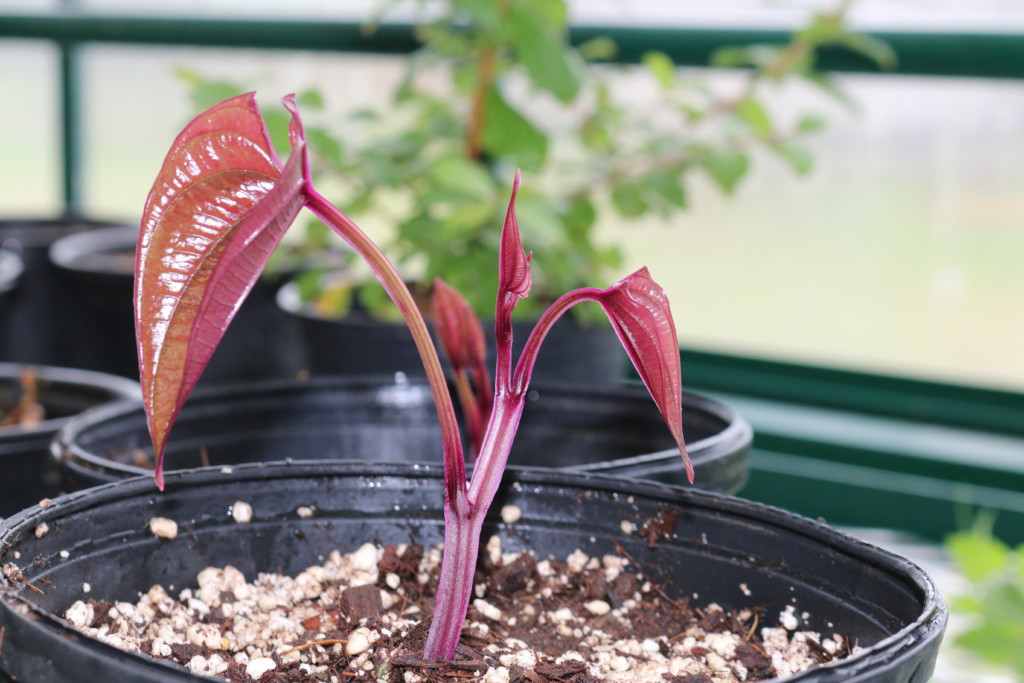
Fresh purple-fleshed sweet potatoes from most existing varieties have a very firm and dry texture as compared to those of most orange-fleshed ones, and do not yield a favorable mouthfeel when baked. They are thus not quite suited as the “fresh-market type” for being used directly for baking, which may have negatively impacted their popularity in the U.S. market dominated by the fresh-market-type orange-fleshed sweet potatoes. In addition, they are all very susceptible to weevil infection, which has made it essentially uncultivable in southern Texas. Therefore, we have sought to breed a new purple-fleshed sweet potato hybrid that possesses better resistance against weevil infection, and produces storage roots with improved texture. After more than eight years of efforts, Dr. Ming Gao, with the assistance of students and farm staff, has successfully selected two new improved purple-fleshed sweet potato hybrids. We have vigorously tested them at our experimental farm over the past three years, and plan to conduct two rounds of producer-site trials in the coming years. Along with the breeding efforts, we have developed some rare resources for sweet potato genetics and genomics studies. One of the two selected hybrids, R5, happened to have the self-compatible trait completely restored, which was the result of an extremely rare genetic recombination. Thanks to this unusual and highly desirable trait, we were able to obtain the only true self-pollinated F2 mapping population in the world. We also successfully constructed two true backcross mapping populations using the two new hybrids and their parents. These unique genetic resources are currently being used in the USDA-NIFA-funded genetics and genomics studies.
